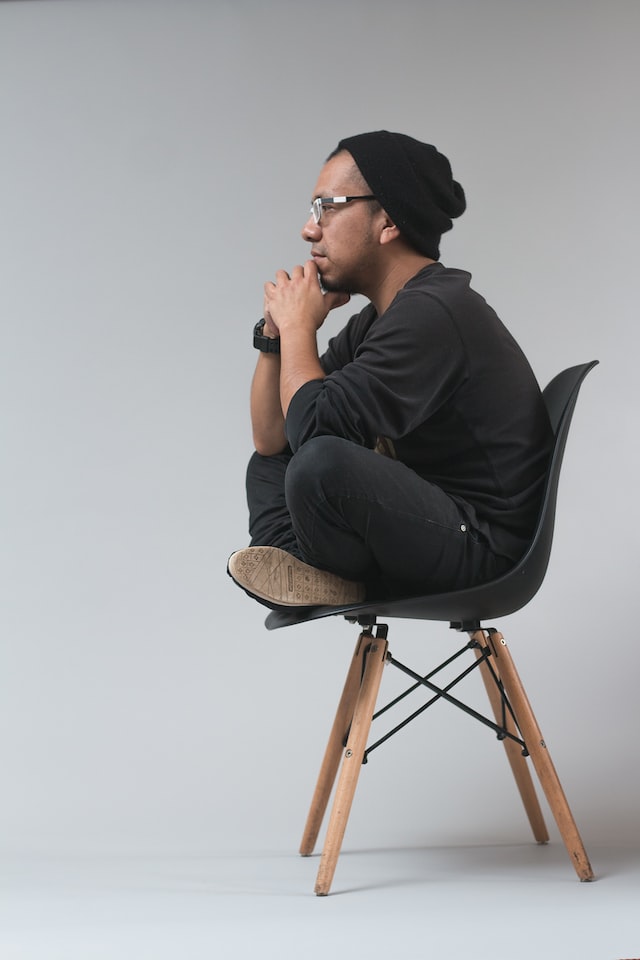8. Used to and Would for past habits
Past habits which do not exist now
Reading is a habit we should never give up.
Read the following text
Pay attention to the words in bold
When Marta was a child, she used to visit her grandma in a small village. The girl would play in the garden with other kids all day long, and in the evenings she used to love listening to her granny’s tales. They wouldn’t light electric lamps in the evenings, but candles, and shadows in the room would turn a usual place into a magic castle. Grandma Tess didn’t use to read loudly and her voice was soft and soothing like a touch of warm material on a cold day.
Check yourself. Answer the questions about the text.
Study the rules
Use used to:
- for past repeated actions, habits and states that are not true anymore or don’t happen regularly;
- to emphasise that things that were happening in the past are different now.
Example: We used to read newspapers, but now we don’t.
Use would:
- for past repeated actions only, NOT states or habits, that are not true anymore; note that they prefer to use “used to” with the verb “live”;
- to emphasise that activities or actions that were happening in the past are different now.
Example: We would read newspapers every morning, but now we don’t.
NB:
Do NOT use either “used to” or “would” to talk about a specific time in the past (in 1920, last month, etc.), how long something took or how often it happened. Wrong: I used to work very hard last month. Right: I worked very hard last month. Wrong: I used to live in Manchester for three years. Right: I lived in Manchester for three years.
NB:
Both “would” and “used to” can be replaced by normal past simple forms with the use of some expressions like “usually”, “normally”, “every day”, etc. E.g.: As a child, I used to/would visit my grandparents. You can say: As a child, I usually visited my grandparents.
Both “would” and “used to” can NOT be used for present habits. Wrong: Nowadays, we used to/would walk more than before. Right: At that time, we used to /would walk more than… .
NB:
Unlike “used to”, “would” always needs the context referring to the past (when I was younger, in my school years, etc.) and an indication to a repeated action (every day, always after work, etc). Wrong: She would listen to music a lot. Without the past context, this sentence is a conditional two and refers to the present/future. And without a sign that it was a repeated action, it becomes a habit. So, to put it right, you should say: When she was younger (the context), she would listen to music a lot if she had time (she repeated it when she had time).
In quesitons, don’t use “would”, but “used to” as “would” sounds too formal and unnatural in everyday speech.
In negative sentences, use “would” only when you want to emphasize strong refusal of doing something, not negation of repeated actions. When you talk about absence of repeated actions, use “used to”.
TIP: When in doubt, the usage of “used to” is always safe as it goes well with everything.
Look carefully at the tables. Compare how we form sentences with “used to” and “would”.
| Form | Example | |
| + | Subject + used to + V1 | He used to travel a lot with his parents. |
| – | S + did not (didn’t) + use to + V1 (infinitive) S + never + used to + V1 | They didn’t use to like climbing. She never used to play chess. |
| ? | Question word + did + S + use to + V1? Did + S + use to + V1? | What cinema did you use to go to as a kid? Did she use to play tennis in her teens? |
| Form | Example | |
| + | Subject + would + V1 | He would travel a lot with his parents. |
| – | S + would not (wouldn’t) + V1 (infinitive) S + would + never + V1 | For strong refusals: They wouldn’t eat broccoli when they were children. She would never learn to play chess because she loved judo. |
| ? | Question word + would + S + V1? Would + S + V1? | Sounds very formal and unnatural in everyday speech: What cinema would you go to as a kid? Would she play tennis in her teens? |
PRACTICE
Task 1
Spot the wrong and right sentences!
In the next two exercises, you have to understand if the sentences are correct or incorrect.
First, you’ll participate in a quiz and do it with two guys.
Now you’re going to spot the right and wrong sentences on your own like professionals!) Tick the corresponding box: wrong or right. Explain the mistakes in the incorrect sentences. Some phrases are voiced. Please, repeat them after the speaker.

Task 2
Paraphrase
In the next exercise, paraphrase the sentences using “used to” and “would”. Choose “would” where possible. For example, the given sentence is: Two brothers were always happy when they got presents for Christmas. Your sentence should be: Two brothers used to be happy when they got presents for Christmas. In this case, it’s incorrect to use “would” as “be” is a stative verb, so you can put only “used to”.
Task 3
Pronunciation matters
Read and listen to the sentences below. Then repeat after the speaker.
Task 4
If you don’t, maybe you did?

Do you have good memories about your childhood? Let’s check! Spin the wheel and continue the sentences so that they are true for you.
Task 5. Listening
What did they say?
Now you’ll need to listen to a short story and fill in the missing words or phrases.
First, listen to the whole text, then fill in the gaps.
Fill in the gaps.
[
Then or now?
Choose if these things are more typical for the 1970s or for the 2020s. Say, why you think so.
- Parents bring up their children without the help of the grandparents.
- Most marriages are traditional and almost never end up in a divorce.
- Married people never choose to live separately.
- Fathers choose to stay at home with their young children while their wives work.
Answers
- Parents bring up their children without the help of the grandparents. — 2020s
- Most marriages are traditional and almost never end up in a divorce. — 1970s
- Married people never choose to live separately. — 1970s
- Fathers choose to stay at home with their young children while their wives work. — 2020s
Now change the sentences about the past using “used to” and “would”. Remember more things about the past habits and traditions in your country or the world.
Homework
Watch the video and remember how to use “used to” and “would”, then make your own sentences about something that you did and don’t do any longer. Write them down and then record yourself reading the sentences.
Record yourself.
